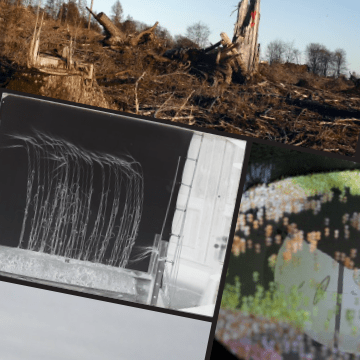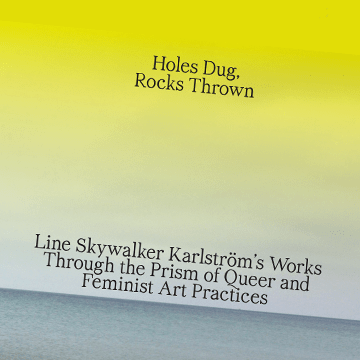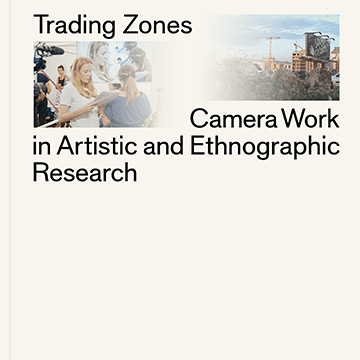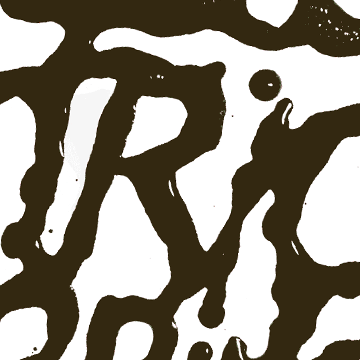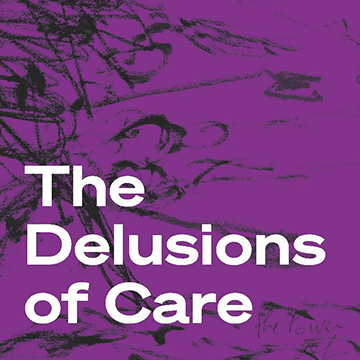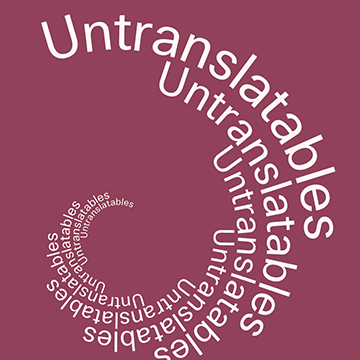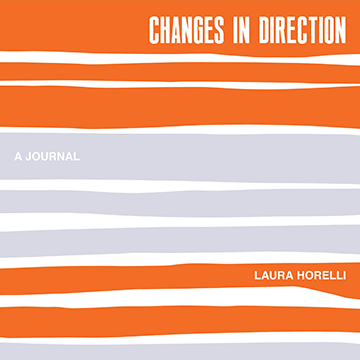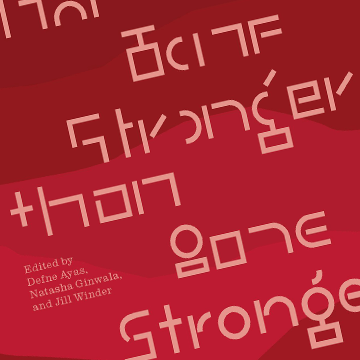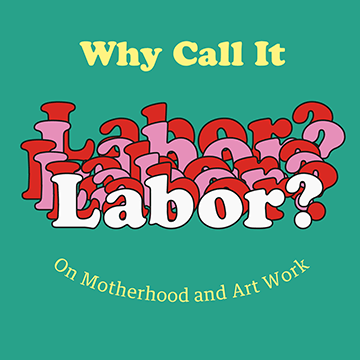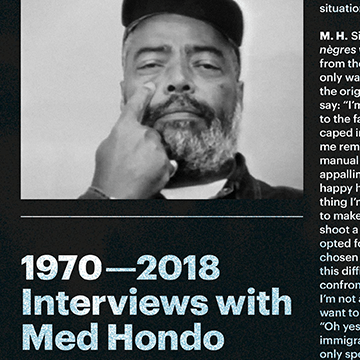When the outer world tells you who you are, who to be, and those in your immediate, unchosen community tell you to be another, how do we understand who we truly want to be? Away from prescribed imaginaries, how can we find our own reality? Should we even find an identity? Do we have a choice? Does it require asking humbly for allowance? When we receive recognition, does it risk furthering agendas that keep us in our "place"? Together, these poems, letters, anecdotes, interviews and stories demonstrate that living as a "member of the Asian diaspora" can never be presented as a singular expression. Moving through our world is a process of being emergent, sometimes in conflict, other times in collaboration, with a diasporic identity that continues to be ever more complex. Here we hope to find an opportunity to practice our own becoming.
Category: Anthology
Contested Landscapes
Contested Landscapes is dedicated to different rural regions—their landscapes, their producers, and their work. The paths of the family of the artist Sandra Schäfer and those of the famous German photographer August Sander cross in the Westerwald, a rural area in Germany shaped by farming and mining.
Holes Dug, Rocks Thrown
'Holes Dug, Rocks Thrown' is the first comprehensive presentation of the artist Line Skywalker Karlström's work. It documents a practice, that over a period of more than twenty years have been committed to 'queer feminist world making' using a performative and embodied approach.
Trading Zones
This book introduces camera-based practices at the intersections of artistic and ethnographic research that critically examine the means of their own production and social embeddedness. In shared practices such as recording in the field, editing in post-production and modes of presentation, the camera is involved as an agent rather than an innocent device. How does the camera grapple with the invisible and how does it reveal what the camerawoman is unable to see? How do films, videos and photographs provide access to vulnerable knowledges and what presentation formats can extend the linearity of narration?
Xenogenesis – The Otolith Group
The publishing of the first catalogue raisonné on the work of the Otolith Group is timely and comes at a pivotal point in their practice. The work of this London-based artist’s collective comprised of Anjalika Sagar and Kodwo Eshun covers politics of race and diversity and incorporates film making and post-lens-based essayistic aesthetics that explore the temporal anomalies, anthropic inversions, and synthetic alienation of the posthuman, the inhuman, the non-human, and the complexity of the envi-ronmental conditions of life we all face.
Electric Brine
Flowing, seeping, leaking, cascading, shaping, Electric Brine is a volume of poetry and critical essays by women voices from diverse fields such as literature, geography, media studies, history of life sciences, sociology, and poetics of science and fiction, each of them central to the independent curatorial research entity The World in Which We Occur (TWWWO, 2014-ongoing) and its associated online study group Matter in Flux.
The Delusions of Care
The Delusions of Care is a culmination of three long essays that ruminate on notions of care in our contemporary and historically. It is concerned with the appropriation of care by the capitalist establishment as much as supremacists of all kinds. What can we consider as care and who gives care for what reasons.
Unübersetzbare Begriffe Kultureller Praktiken
Unübersetzbare Begriffe schlägt ein neues Vokabular von Begriffen vor, die in ihrer Sprache bestehen bleiben und nicht übersetzt werden. Es handelt sich um Wörter, die kulturelle Praktiken, Haltungen und Wertesysteme vermitteln und aus ihrem jeweiligen Sprach- und Wortkanon erklärt werden.
Untranslatable
Untranslatable proposes a new vocabulary of terms that remain untranslated in their original language. These are words that convey cultural practices, attitudes and value systems and are explained from their respective language and word canon. Terms are presented that broaden perspectives, facilitate new perspectives, and thus enrich collective thinking as a global community.
Undercommons
Una voce perentoria ci richiama in ogni momento a essere responsabili, efficienti, professionali. Anche i beni comuni sono stati colonizzati, l’università è una catena di montaggio e siamo costantemente in debito verso chi ci richiama all'ordine. Alla proliferazione della logistica capitalista e alle mutazioni odierne del controllo sociale, Stefano Harney e Fred Moten rispondono con questa raccolta di saggi che ci invita a sperimentare nuove forme di socialità nell’antagonismo generale.
Changes in Direction
Changes in Direction – a Journal provides multivocal and transnational African-European statements to current decoloniality debates from different perspectives. The Finnish-German artist Laura Horelli engages with the traumatic and complex histories of colonialism and international solidarity between East Germany, Finland and Namibia, staging micro-historical interventions in public spaces.
Stronger Than Bone
Stronger than Bone draws upon the embodied strength, intuitive desires, and collective wisdom of feminists and non-binary protagonists to foreground the manifold dimensions of feminist politics and commitments. Written by thinkers and allies across generations with a focus on heterogeneity, intersectionality, and influence across geographies, this reader arrives into the world at a moment of heightened fragility, under the shadow of the coronavirus pandemic.
Why Call it Labor?
Why Call It Labor? comprises four essays and one conversation with contemporary artists and curators discussing their experience of becoming mothers as professionals in the arts, its reality and effects. While their reflections represent a similar strata of art worker in terms of background, class, and career trajectory, the impact of instruments of patriarchy on rendering maternity invisible that they describe is recognizable and insidious.
1970–2018 Interviews with Med Hondo
1970—2018 Interviews with Med Hondo, the first volume in a three-part publication, brings together seventeen interviews conducted with Med Hondo over a period of almost half a century, most of the interviews originally published in French were translated into English. The book originated in the long-term project Cours, cours, camarade, le vieux monde est derrière toi—Run, comrade, run, the old world is behind you—The Cinema of Med Hondo.
On the Run
A pioneer of African cinema and author of an uncompromising, strong and diverse oeuvre, we have come to know Med Hondo over the decades as one who simultaneously gazes, belligerently and attentively, sharply, passionately and ironically, deep into the past, precisely at the present, but also far into the future. On the Run. Perspectives on the Cinema of Med Hondo, second in a series of three, features contributions that pay tribute to Med Hondo’s films.
Das Kino von Med Hondo
This publication is the third of a series that aims to pay tribute to Med Hondo’s cinema and to reinvigorate interest in his films. It consists of twenty two essays and interviews in French and German, published in their original language. The book originated in the long-term project Cours, cours, camarade, le vieux monde est derrière toi—Run, comrade, run, the old world is behind you—The Cinema of Med Hondo.

